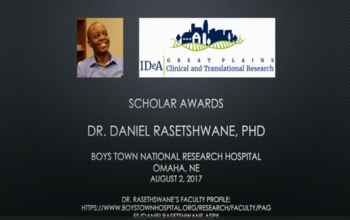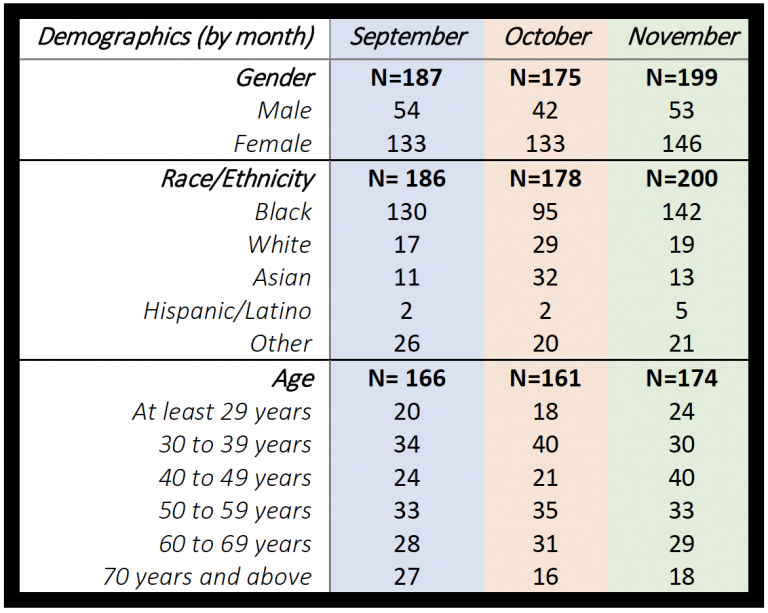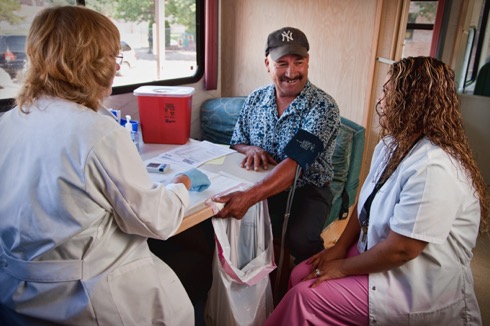
Graduate Scholar Series: Trey Andrews, PhD
Trey Andrews, PhD, is an Assistant Professor in the Department of Psychology in the Institute for Ethnic Studies at the University of Nebraska – Lincoln. He is also a recipient of the 2018 Great Plains IDeA CTR Scholar Award. Get more information on his study HERE.
The Graduate Scholar Series highlights Scholar awardees who have graduated from our program by successfully obtaining extramural funding. These interviews share their research, progress, words of wisdom, and how the program has been beneficial to them.
GP IDeA-CTR: Can you briefly explain the nature of your study?
Trey Andrews: My study, initially funded through the GP-IDeA-CTR, tests how mental health awareness and attitudes passed through a community and evaluates how simple interventions (a fotonovela in this case) can help improve how that information passes and improve the support that victims of violence receive. After I graduated from the program earlier than expected due to receiving an NIH award, I continued this project. Like most of my research, this study focuses on Latinx populations, though due to the pandemic and the need for in-person procedures, it is currently paused.
GP IDeA-CTR: How did the Scholar’s Program help you?
Trey: The Scholar program helped me in two primary ways. First, it provided the initial funding for my study. Second, it allowed me to gain additional training that has been incredibly helpful in my most recent grant submissions. As an example, the network methodologies that I was able to better learn through the Scholar award form central components of two recent R01 submissions.
GP IDeA-CTR: What funding did you receive and how will it help move your research forward?
Trey: I am part of a Center of Biomedical Research Excellence through NIGMS. My project there focuses on stress regulation, stress exposure disparities, and substance use. It helps contribute to understanding about complex stress responses and how they influence reactions in daily life. This is a critical component to understanding how stress affects health equity outcomes.
GP IDeA-CTR: Any words of wisdom for future Scholars?
Trey: Don’t let feedback get you down and keeping “working” 2 or 3 ideas that you’re most excited about. In my limited experience, it seems like grant reviews can be about pitching the right idea the right way to the right panel and it may take some time to get that combination right.
GP IDeA-CTR: What impact will your studies have on communities in the near future?
Trey: In my lab, we’re always focusing on how to have a positive impact for Latinx communities in our area/region. At the moment, we’re working on understanding better ways to provide information about COVID-19 and strategies for improving access and utilization of trusted health resources for COVID-19 among Latinxs in Nebraska. As we return to other treatment-related work, I anticipate we’ll be working to enhance access to stress-related mental health services.
GP IDeA-CTR: What sort of results have you seen in your study so far?
Trey: In the study initially funded by the GP-IDeA-CTR, our community feedback overwhelmingly supported our approach and gave us critical feedback on how to design the fotonovela (e.g., victims of domestic violence endorsing that depicting the violence would be vitally important). Our other studies tell us that social support is crucial for recovery from violence exposure, but discrimination against Latinxs worsens the mental health outcomes from violence exposure. Still, some of the treatments we have tested, do seem to work well.



